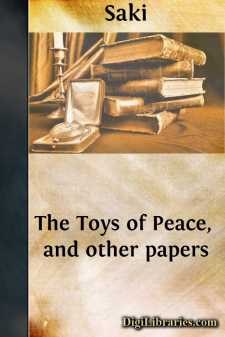Categories
- Antiques & Collectibles 13
- Architecture 36
- Art 48
- Bibles 22
- Biography & Autobiography 815
- Body, Mind & Spirit 144
- Business & Economics 28
- Children's Books 18
- Children's Fiction 14
- Computers 4
- Cooking 94
- Crafts & Hobbies 4
- Drama 346
- Education 58
- Family & Relationships 59
- Fiction 11833
- Games 19
- Gardening 17
- Health & Fitness 34
- History 1378
- House & Home 1
- Humor 147
- Juvenile Fiction 1873
- Juvenile Nonfiction 202
- Language Arts & Disciplines 89
- Law 16
- Literary Collections 686
- Literary Criticism 179
- Mathematics 13
- Medical 41
- Music 40
- Nature 179
- Non-Classifiable 1768
- Performing Arts 7
- Periodicals 1453
- Philosophy 65
- Photography 2
- Poetry 896
- Political Science 203
- Psychology 44
- Reference 154
- Religion 515
- Science 126
- Self-Help 85
- Social Science 82
- Sports & Recreation 34
- Study Aids 3
- Technology & Engineering 59
- Transportation 23
- Travel 463
- True Crime 29
Our website is made possible by displaying online advertisements to our visitors.
Please consider supporting us by disabling your ad blocker.
The Toys of Peace, and other papers
by: Saki
Categories:
Description:
Excerpt
THE TOYS OF PEACE
“Harvey,” said Eleanor Bope, handing her brother a cutting from a London morning paper of the 19th of March, “just read this about children’s toys, please; it exactly carries out some of our ideas about influence and upbringing.”
“In the view of the National Peace Council,” ran the extract, “there are grave objections to presenting our boys with regiments of fighting men, batteries of guns, and squadrons of ‘Dreadnoughts.’ Boys, the Council admits, naturally love fighting and all the panoply of war . . . but that is no reason for encouraging, and perhaps giving permanent form to, their primitive instincts. At the Children’s Welfare Exhibition, which opens at Olympia in three weeks’ time, the Peace Council will make an alternative suggestion to parents in the shape of an exhibition of ‘peace toys.’ In front of a specially-painted representation of the Peace Palace at The Hague will be grouped, not miniature soldiers but miniature civilians, not guns but ploughs and the tools of industry . . . It is hoped that manufacturers may take a hint from the exhibit, which will bear fruit in the toy shops.”
“The idea is certainly an interesting and very well-meaning one,” said Harvey; “whether it would succeed well in practice—”
“We must try,” interrupted his sister; “you are coming down to us at Easter, and you always bring the boys some toys, so that will be an excellent opportunity for you to inaugurate the new experiment. Go about in the shops and buy any little toys and models that have special bearing on civilian life in its more peaceful aspects. Of course you must explain the toys to the children and interest them in the new idea. I regret to say that the ‘Siege of Adrianople’ toy, that their Aunt Susan sent them, didn’t need any explanation; they knew all the uniforms and flags, and even the names of the respective commanders, and when I heard them one day using what seemed to be the most objectionable language they said it was Bulgarian words of command; of course it may have been, but at any rate I took the toy away from them. Now I shall expect your Easter gifts to give quite a new impulse and direction to the children’s minds; Eric is not eleven yet, and Bertie is only nine-and-a-half, so they are really at a most impressionable age.”
“There is primitive instinct to be taken into consideration, you know,” said Harvey doubtfully, “and hereditary tendencies as well. One of their great-uncles fought in the most intolerant fashion at Inkerman—he was specially mentioned in dispatches, I believe—and their great-grandfather smashed all his Whig neighbours’ hot houses when the great Reform Bill was passed. Still, as you say, they are at an impressionable age. I will do my best.”
On Easter Saturday Harvey Bope unpacked a large, promising-looking red cardboard box under the expectant eyes of his nephews. “Your uncle has brought you the newest thing in toys,” Eleanor had said impressively, and youthful anticipation had been anxiously divided between Albanian soldiery and a Somali camel-corps. Eric was hotly in favour of the latter contingency. “There would be Arabs on horseback,” he whispered; “the Albanians have got jolly uniforms, and they fight all day long, and all night, too, when there’s a moon, but the country’s rocky, so they’ve got no cavalry.”
A quantity of crinkly paper shavings was the first thing that met the view when the lid was removed; the most exiting toys always began like that. Harvey pushed back the top layer and drew forth a square, rather featureless building....






